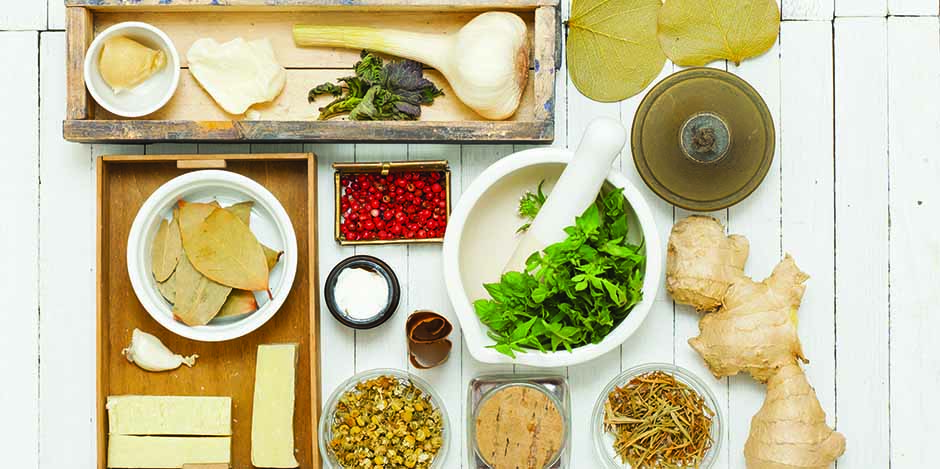In a glistening new 4,500-square-foot kitchen near New Orleans’ Tulane University School of Medicine, doctors-to-be trade lab coats for aprons to learn not only what food may help their patients, but also how to make it taste good. Two thousand miles away in Napa, Calif., endocrinologists and dermatologists rub shoulders with celebrity chefs for four days each February at the Healthy Kitchens, Healthy Lives Conference, an unlikely collaboration between the Harvard T.H. Chan School of Public Health and The Culinary Institute of America. Meanwhile in Deerfield, Ill., at the new Gaples Institute for Integrative Cardiology, heart specialists—a notoriously skeptical lot when it comes to integrative medicine—are flocking to courses about the healing power of food.
“Everyone knows eating healthy is important for preventing disease,” says cardiologist Stephen Devries, M.D., executive director of the Gaples Institute. “What few people realize is the incredible potency of nutrition for treatment.”
Devries is among a growing number of doctors striving to reframe good nutrition as not just a commonsense means of fending off illness, but also an indispensable, science-backed tool for managing it. As far back as 1998, a seminal study in the journal Circulation showed heart disease patients who switched to a Mediterranean diet (rich in veggies, beans, whole grains and good fats, and lower in red and processed meat) were 72 percent less likely to have another heart attack within five years. Subsequent research has shown that dietary changes, and specific nutrients, can help reverse diabetes, boost cancer survival rates, ease depression, and fight acne and wrinkles.
Until recently, budding physicians have had little opportunity to learn about such links. One 2015 University of North Carolina study found that out of 133 U.S. medical schools, 71 percent fail to provide even the minimum recommended 25 hours of nutrition education. Once they move on to training for specialties, students typically get no nutrition instruction.
“I trained in top internal medicine and cardiology programs, and I did not have one minute of nutrition education,” says Devries, whose nonprofit aims to change that. “Even today, during the typical doctor visit, there is a brief mention about needing to eat well and then the conversation shifts to medication.”
Another problem: Many doctors still associate healthy food with bland food, and few have much experience in the kitchen. “Nobody teaches people how to cook anymore,” says Timothy Harlan, M.D., a chef-turned-physician and executive director of The Goldring Center for Culinary Medicine at Tulane. Opened in 2014, the center is the nation’s first teaching kitchen associated with a medical school. There, a full-time chef (a member of Tulane’s medical school faculty) teaches five classes per week to students, who in turn teach community members.
Harlan stresses that he does not view healthy food as a cure-all. “We don’t use the term ‘food as medicine’ here because I think it sends the wrong message. There is a clear-cut role for pharmaceuticals, too.” No doubt, in some cases, a healthy diet can help people avoid medication, he says. In other cases, drugs work “synergistically” with nutrients to help patients respond to treatment better and require lower doses of medication. So far, The Goldring Center has licensed its culinary medicine classes to 18 medical schools. And each day, Harlan gets another call from a curious administrator.
“People are desperate for this kind of information. We may be the first of this kind, but we will definitely not be the last,” he says.
READ MORE
Foods to Fight Cardiovascular Disease

